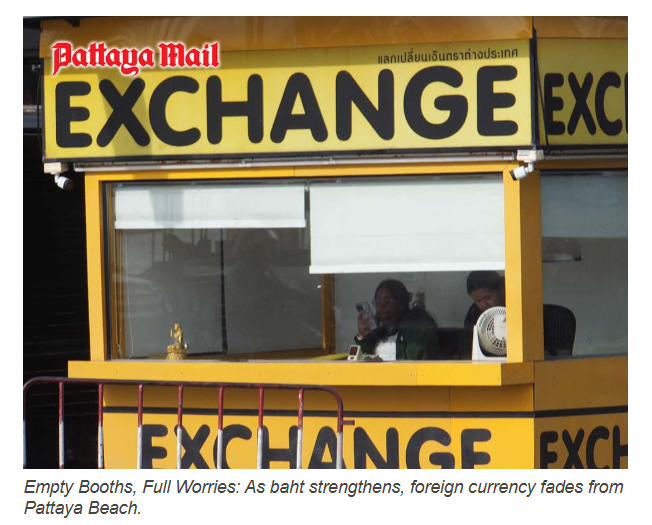
G-Union
News
May 25, 2025

Thailand’s economic recovery, particularly in the tourism sector, faces a new headwind as the Thai baht edges toward unsustainable strength. As of the morning of May 22, the baht opened at 32.69 per US dollar—slightly stronger than the previous day’s close of 32.73. It has been trading sideways within the narrow range of 32.65 to 32.84 baht per dollar over the past 24 hours, reflecting broader concerns over the US fiscal situation.
Despite a rise in US 10-year bond yields—typically a factor that would support the dollar—the greenback remains under pressure due to investor concerns over America’s fiscal stability and reciprocal tariffs. This environment has led to capital outflows from US assets, weakening the dollar and allowing the baht to gain modest ground.
Additionally, a gradual uptick in gold prices is also supporting the baht, as investors seek safe havens amid geopolitical uncertainty and fiscal volatility in the US. Market participants have also started trimming their long USDTHB positions, further boosting the Thai currency.
However, financial analysts warn that if the baht strengthens beyond the 32.50 mark, Thailand’s fragile tourism sector could take a significant hit. With Chinese tourist arrivals still far below pre-pandemic levels, an overly strong baht risks making Thailand less competitive compared to other Southeast Asian destinations. A stronger baht increases the cost of travel for foreign tourists and cuts into local spending, making it harder for the country to attract much-needed tourism revenue.
Trend-following strategies suggest that the baht’s current level is near a psychological ceiling. Unless the currency weakens past 33.20–33.30 again, the risks to Thailand’s export competitiveness and tourism appeal remain high. If the baht holds too strong, it could stall the country’s economic rebound—particularly as Thailand attempts to reposition its tourism sector amid shifting global travel patterns and dwindling interest from key markets like China.
In the words of a leading economist: “The baht is at a crossroads. If it strengthens further, the damage to tourism could outweigh any temporary macroeconomic gain.”
On Pattaya Beach Road, an all-too-familiar sight speaks volumes: an empty currency exchange booth, a visual reminder that fewer foreign tourists are bringing in dollars, euros, and pounds. With the dollar under pressure from U.S. fiscal worries and gold prices climbing, the baht continues to gain, but that gain may come at a steep cost.
Source: Pattaya Mail.